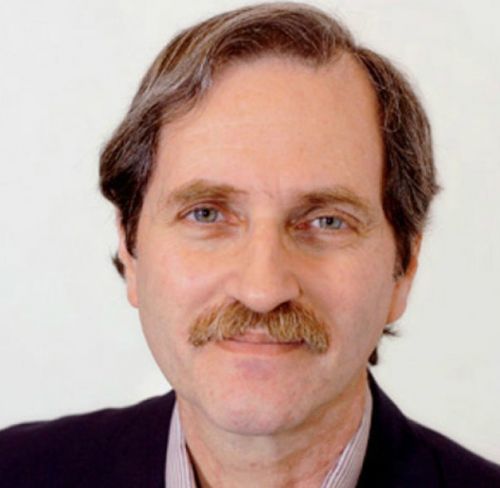 BLOG VIEW: There are a lot of ways to make a political point in Washington, and the best examples always leave the public fairly amazed. If you don't believe it, consider the following recent examples:
BLOG VIEW: There are a lot of ways to make a political point in Washington, and the best examples always leave the public fairly amazed. If you don't believe it, consider the following recent examples:
First, we have a postal worker from Florida, Douglas Mark Hughes, who made a personal delivery to Capitol Hill with a gyrocopter, thus assuring that 535 protest letters actually completed their journey. Along the way, Hughes and his stealth device went the ‘last mile’ and evaded every security protocol and radar scan in Washington with the result that his one-man support for financial campaign reform was on news outlets worldwide.
Second, we have the Community Home Lenders Association (CHLA), a mortgage lender group which in its own way did something no less remarkable even though no gyrocopters were involved: It came down on the side of more lender regulation and disclosure.
When I first got the news release from CHLA legislative consultant Kevin Igoe I was fairly certain the group's email account had been hacked. A quick and perhaps incomplete review of financial history shows that in the 3,600 years since the Code of Hammurabi was first written no lender group has ever sought more required disclosures or increased legislative guidance….
So this was something new. A closer look at the CHLA proposal suggests that it's one of the smartest political feints seen in Washington in a very long time. If the group's proposal is enacted they win, and if their suggestion is rejected they also win. In the world of Washington politics this is an example of ‘win-win’ thinking at its finest.
Mortgages And Regulation
In recent years the 3,000 or so financial lobbyists stationed on K Street concentrated on blocking the passage of Dodd-Frank and then, after it passed, have largely attempted to dismember Dodd-Frank paragraph-by-paragraph even as industry profits soared.
The mortgage industry, however, includes more than big banks and their lobbyists. There are huge numbers of mortgage brokers, mortgage bankers, non-banks and credit unions. While such mortgage lenders may not have the size and financial heft of the big banks in Washington, they have an important role in thousands of communities, which also means they have a lot of clout in DC among vote-hungry politicians.
The passage of Dodd-Frank and the SAFE Act include a number of ‘carve-outs’ which might surprise the public – if they knew about them. For instance, not all mortgage loan officers are required to have the same credentials as other loan officers selling the exact same financial products.
Consumers, says Igoe, are ‘not generally aware of the almost unique exemption bank loan originators enjoy from basic licensing, testing and continuing education requirements, nor are they aware there are 1,415 bank and other depository institution mortgage loan originators that failed the SAFE Act mortgage competency test.’
‘The way lobbying functions in Washington is that every special interest group seeks to have its agenda enshrined in the legal system,’ says Rick Sharga, executive vice president at Auction.com. ‘Since different groups have different goals it should come as no surprise that conflict and struggle on Capitol Hill are entirely common, an example of democracy at work and in a lot of cases – including this particular situation – may be a good thing.’
Will Congress now rush to assure that bank loan originators must have the same credentials as non-bank mortgage lenders? Not likely, but whether or not there is change in Washington CHLA wins.
Here's why: First, CHLA has invoked one of the most sacred cultural principles, what's good for the goose must be equally good for the gander. Why shouldn't lenders selling the same complex products be required to have the same credentials?
Second, every marketplace suffers from clutter, meaning that competitors selling the same product and service need a way to stand out. If the new form is approved, then loan originators who don't work for banks can mention that they have credentials that most bankers lack while big-bank loan officers who have not met the standards will have to explain why they don't to consumers.
The CHLA form helpfully explains that the SAFE Act ‘was passed by Congress with the goal of ensuring that mortgage loan originators have the necessary knowledge and ethics to properly educate consumers on their mortgage transaction. Independent education, examination and background check requirements were put in place for certain mortgage loan originators to obtain a license to advise consumers seeking mortgage financing. These are not required for mortgage loan originators working at banks and other depository institutions.’
The form then requires loan officers to certify whether they are licensed or not, if they have passed credit and criminal background checks, completed 20 hours of SAFE Act approved pre-licensing credits, and finished SAFE Act-approved annual continuing education requirements.
Of course, if all loan officers have to complete the form, and if lenders associated with banks and depository institutions are not required to have such credentials, then you can pretty much guess that most bank-based loan officers will have a lot of negative marks to show would-be borrowers. As CHLA explains, 1,415 of them failed the test. Of course, it would also be interesting to know how many nonbank loan officers failed.
Third, if Congress does not approve the idea, then CHLA gets to complain and promote the differences between loan officers who work for banks and those who don't.
‘Since one of the primary reasons Congress passed the Dodd-Frank bill was to make lending 'safer' for consumers, and one of the ways the bill aimed to do this was to require training and licensing of the people originating the loans, having two sets of rules is more than a little puzzling,’ Sharga noted. ‘It will be interesting to see how proponents of the disparate rules defend this system, if the proposal comes to a vote.’
Whether or not Congress passes the proposal, the greater point is the CHLA is pushing away the clutter and trying to create an overt and unsubtle competitive advantage for its members. And that – after all – is what a Washington association is supposed to do.
Peter G. Miller is a nationally syndicated real estate columnist. His books, published originally by Harper & Row, sold more than 300,000 copies. He blogs at OurBroker.com and contributes to such leading sites as RealtyTrac.com, the Huffington Post and Auction.com. Miller has also spoken before such groups as the National Association of Realtors and the Association of Real Estate License Law Officials.
(Do you have an opinion to share with MortgageOrb? Get in touch! Send an email to pbarnard@zackin.com.)













